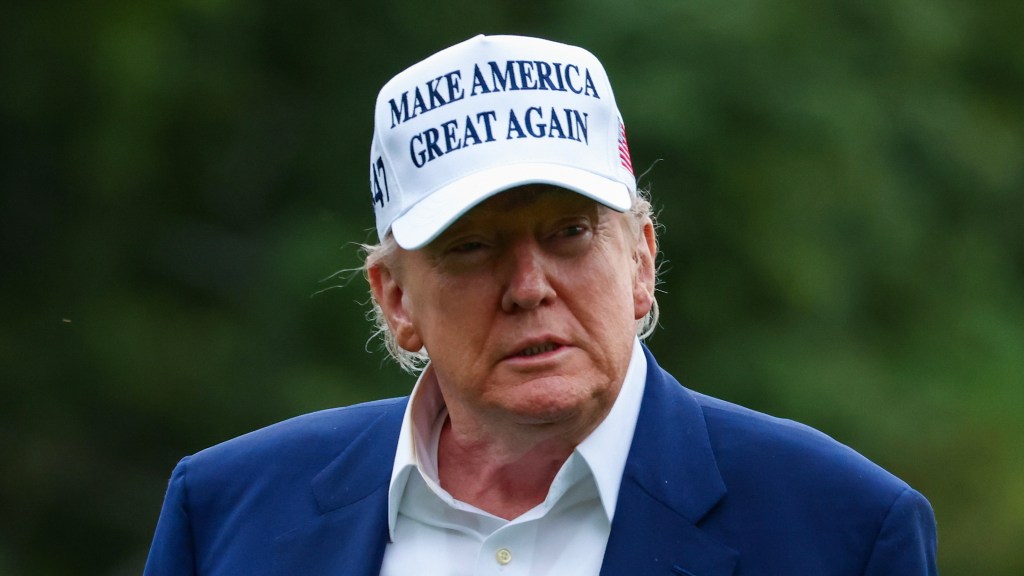European Markets Surge as Trump Reconsiders Tariff Plans
European markets experienced a significant upturn following President Trump’s decision to postpone the implementation of tariffs on the European Union. This adjustment comes amidst new data indicating ongoing turmoil is prompting most UK businesses to revise their investment strategies.
Germany’s Dax increased by 1.7 percent to 24,027.65, while France’s Cac 40 climbed 1.2 percent to 7,828.13, after Trump opted to delay imposing aggressive 50 percent tariffs.
While American and British markets were closed due to Memorial Day and the spring bank holiday, respectively, futures for the S&P 500 and Nasdaq both showed a rise of over 1 percent.
The British pound reached a three-year high against the dollar, nearing $1.36. Meanwhile, gold saw a 0.6 percent decline to $3,337 an ounce, as the reduced fears surrounding tariffs decreased demand for this safe-haven asset.
Trump has retreated from his earlier threat to apply a 50 percent tariff on EU goods starting June, reverting to a prior deadline of July 9 for further negotiations with the bloc.
This decision came after a discussion with Ursula von der Leyen, where Trump conveyed that the European Commission president expressed a desire to engage in significant negotiations. He had previously commented that trade discussions with the EU were making no progress.
Since Trump first introduced sweeping tariffs on “liberation day” on April 2, his trade duty announcements have had a profound impact on global markets. According to the latest EY-Parthenon CEO Outlook survey, over 80 percent of UK chief executives have modified their investment plans due to these developments. Of those, a quarter have suspended intended investments, and 49 percent have delayed their plans.
The survey, which included 100 UK chief executives, followed numerous global corporations that withdrew their financial forecasts due to tariff instability. Companies affected included automakers Ford and Stellantis, airlines American and Delta, and consumer goods firms Diageo and Krispy Kreme.
The EY-Parthenon survey, conducted in April after the initial tariff announcements, found that 45 percent of participants were “very or extremely” concerned about the tariffs’ effects on their businesses and sales, while an additional 40 percent were “moderately” concerned.
According to the survey results, 43 percent of respondents cited “geopolitical, macroeconomic and trade uncertainty” as the primary risk to achieving growth targets over the next 12 months. Moreover, 48 percent indicated intentions to diversify their supply chains by relocating production to regions less affected by tariffs.
Highlighting the swift impact, 39 percent acknowledged that they had already moved operational assets, with 26 percent reporting that they had exited specific geographic markets.
Silvia Rindone, managing partner for EY-Parthenon, emphasized that, “In this climate of heightened uncertainty, agility and innovation must underpin strategic decision-making. Organizations that embrace flexibility, whether through supply chain diversification or technology adoption, will be better positioned to navigate immediate pressures, such as existing global trade disruptions, and foster resilience for the future.”
In a recent example of corporate adaptation, the head of British athleisure brand Tala shared in an interview that the company is actively considering relocating its production processes.
Morgan Fowles noted that a significant portion of the brand’s garments are produced in China and Vietnam, prompting the company to remove most products from its US website due to tariff-related disruptions and potential unexpected costs for customers. Fowles indicated that continued tariff complications may lead them to consider relocating their production facilities.




Post Comment